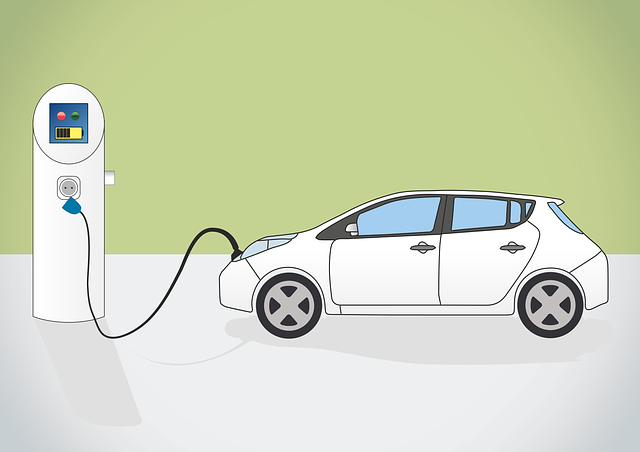Selecting the ideal car battery requires understanding your vehicle's power demands, considering factors like engine size and climate control usage. Reputable brands offer deep cycle batteries for high-performance vehicles, while local options ensure reliability. Professional installers recommend premium brand batteries, safely recharge them, and extend battery lifespan. Key considerations include compatibility, battery type (lead-acid or maintenance-free), cold cranking amps, and reserve capacity. Brands like Optima, Lifepower, and ACID offer diverse options. Safe installation involves locating the battery, gathering tools, disconnecting terminals correctly, replacing the old battery, reconnecting terminals tightly, and testing before driving. Regular maintenance, including terminal cleaning and monthly voltage checks, ensures optimal performance and longevity. Recycling programs promote environmental sustainability.
Need a car battery installer near you? This comprehensive guide explores everything from understanding your vehicle’s power needs to maintaining your new battery. Discover the benefits of professional installation and learn how to choose the right select car batteries for your make and model. We break down common brands, safety steps for replacement, and post-installation care tips.
- Understanding Your Car's Battery Requirements
- Benefits of Professional Installation
- How to Choose the Right Car Batteries
- Common Car Battery Brands and Their Features
- Steps for Safe Battery Removal and Replacement
- Maintaining Your Car Battery Post-Installation
Understanding Your Car's Battery Requirements

When it comes to selecting a car battery, understanding your vehicle’s specific needs is key. Different cars have varying power requirements, and choosing the right battery ensures optimal performance and longevity. Factors like engine size, climate control usage, and even the age of your vehicle play a significant role in determining the best battery type. For instance, high-performance vehicles or those with advanced electrical systems may need deeper cycle batteries capable of handling frequent deep discharge cycles without damage.
Navigating the market for car batteries involves considering reputable brands known for their quality, such as the best car battery brands renowned for durability and performance. Additionally, exploring local options like cheap auto batteries available at trusted auto supply stores near you can offer cost-effective solutions without compromising on reliability. Remember to check reviews and consult with professionals to ensure you select a suitable battery that aligns perfectly with your car’s requirements.
Benefits of Professional Installation

When it comes to car battery installation, turning to professionals like those at a reputable auto shop near you offers numerous advantages. Firstly, expert installers ensure that your new car battery is properly selected after assessing your vehicle’s make, model, and age. This means you’re more likely to get a premium car battery brand known for its high-performance and longevity, such as those from top manufacturers renowned for their quality.
Professional installation also guarantees safe recharging of your car batteries, which can be hazardous if not done correctly. These experts have the tools and knowledge to handle any potential issues, ensuring your vehicle’s electrical system is in optimal condition. By leaving this task to professionals, you avoid the risk of damage or malfunctions that could arise from incorrect installation, thus extending the life of your high-performance car batteries.
How to Choose the Right Car Batteries

When it comes to selecting the right car batteries, there are several factors to consider. Firstly, ensure that the battery is compatible with your vehicle make and model. Each car has specific requirements for voltage, amperage, and physical dimensions, so checking your owner’s manual or consulting a professional installer is essential. Secondly, look into the type of battery. Lead-acid batteries are common but require regular maintenance, while maintenance-free options offer longer lifespans and reduced corrosion without needing to top up electrolyte levels.
Additionally, consider factors like cold cranking amps (CCAs), which indicate the battery’s performance in low-temperature conditions, and reserve capacity, measuring how long a light will stay on if the car is off. For those concerned with auto battery leaks and smells or seeking environmentally friendly options, modern deep cycle batteries with absorbent glass mats (AGM) or gel technology offer reliable performance without traditional maintenance needs. Remember that recharging car batteries safely is crucial, so always follow manufacturer guidelines for charging and storage to ensure longevity and optimal function.
Common Car Battery Brands and Their Features

When it comes to selecting a car battery, there are numerous reputable brands offering reliable and high-performance options. Among the most common and trusted names in the industry are Optima, Lifepower, and ACID. Each brand boasts unique features catering to diverse driver needs.
Optima batteries, for instance, are renowned for their deep cycle performance, making them ideal for various applications, including off-road vehicles and boats. Lifepower stands out with its advanced technology, offering a range of solar-powered car batteries that are both eco-friendly and long-lasting. On the other hand, ACID batteries are known for their affordability without compromising on quality, providing an excellent choice for those seeking cost-effective solutions without sacrificing reliability. A quick reference to a car battery size guide will help you match the perfect battery to your vehicle’s requirements.
Steps for Safe Battery Removal and Replacement

When it comes to car battery installation or replacement, safety is paramount. Here’s a straightforward guide to ensure a smooth process: Start by locating the battery in your vehicle, usually under the hood but varying depending on the make and model. Next, gather necessary tools including gloves for protection and possibly an assistant to help you work safely. Turn off all electrical components and allow the car to cool down before beginning, as batteries can release harmful gases when hot. Disconnect the negative terminal first, followed by the positive one, using a wrench or socket to loosen the bolts securely. Remove the old battery carefully, taking note of its orientation and any attached cables. This step is crucial in preventing short circuits.
For replacement, select a car battery that matches your vehicle’s specifications perfectly, focusing on ampere-hour (Ah) rating, voltage, and physical dimensions. Consider long distance travel car batteries if frequent journeys are involved to ensure reliability during remote stretches. In terms of types, hybrid car battery systems require specialized care due to their unique design and high-voltage nature. Once the new battery is in place, reconnect the positive terminal first, followed by the negative, ensuring a tight connection for optimal performance. Test the battery’s functionality before driving away, as a faulty battery can cause serious issues. Remember that proper disposal and recycling of old car batteries are essential steps to consider for environmental safety, so don’t forget this crucial step after replacing your vehicle’s power source.
Maintaining Your Car Battery Post-Installation

After installing a new car battery, proper maintenance is key to ensure its longevity and optimal performance. One crucial step is regular cleaning and inspection of the battery terminals and cable connections. Corrosion buildup can hinder electricity flow, so using a suitable cleaning solution and a wire brush will help maintain a clear connection. Additionally, checking the battery’s state of charge monthly with a voltmeter or car battery testing equipment ensures it remains within the recommended voltage range.
Selecting the right car batteries is essential for long-lasting performance. Opting for high-quality batteries from reputable brands that offer excellent cold cranking amps (CCA) and reserve capacity can significantly enhance your vehicle’s starting ability, especially in colder climates. Furthermore, staying informed about local car battery recycling programs can contribute to environmental sustainability while ensuring proper disposal of old or damaged batteries.
When it comes to ensuring your car’s reliable performance, choosing the right battery is key. By understanding your vehicle’s requirements, considering professional installation, and selecting a high-quality brand, you can extend the life of your battery and keep your car running smoothly. Remember to maintain regular care post-installation for optimal results. So, whether you’re in need of a replacement or looking to upgrade, take control of your car’s power source with confidence.
